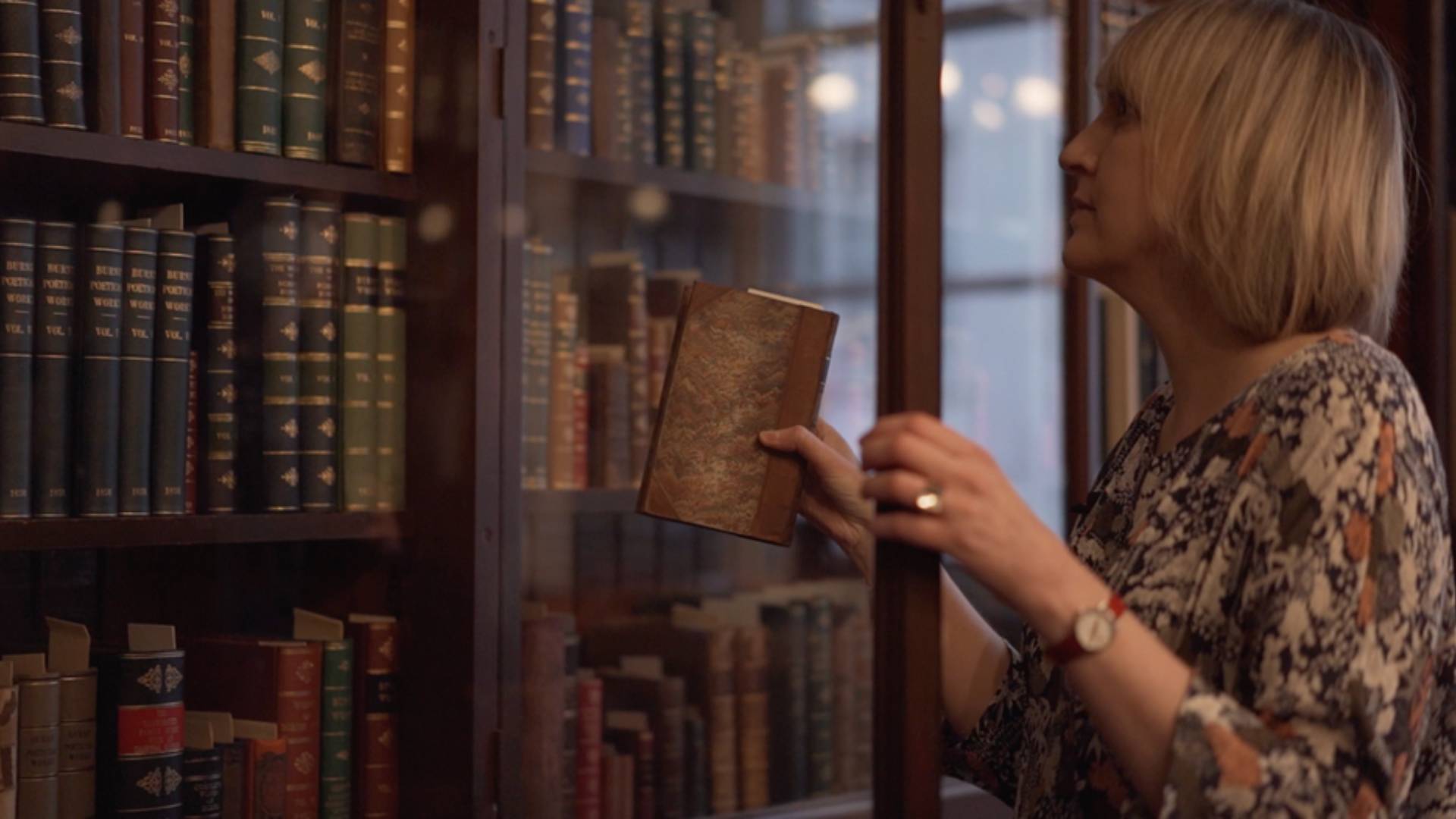
The Linen Hall Library has a depth of material that sheds light on the local love of Burns and helps explain in part why the Gibson Collection came to be deposited in the city.
Samantha McCombe the Linen Hall librarian points to the 1753 Ulster Miscellany as an example of the drouth for Scots poetry in the area. The collection is of Scots and English poetry, sourced from within Ulster and published in Belfast, fully 6 years before Burns’ birth.
“As this volume from 1753 illustrates, the Scottish impact in Belfast was felt throughout the economy, throughout society, and throughout cultural interests. [This included] interest in poetry in Scotch, even before Burns was published.”

The ‘Scotch’ work contained in the Ulster Miscellany is amongst the oldest Ulster Scots writing we have on record. Its themes of romance, foregrounding of the local, and the natural world, show much in common with the Scots poets such as Ramsay who had been operating over the water at the time.
A wee extract from the anonymous “CROCHANHILL. A Scotch SANG” provides a flavour of both language and theme contained in the Scotch section of the Miscellany.
When on the banks of Finn we stray’d,
My flightring heart did pant and glow:
The mony pleasing things she said
Fann’d up the flame, and gart it low.
She smiling heard me speak my mind
Wi’ broken sighs, and ill redd phrase:
Delighted I mysell resign’d
To rapt’rous joys, and endless ease.
But soon the lass resolv’d to gae;
Then was my heart opprest wi’ fears!
Down on the grassie bank I lay,
And swell’d the river wi’ my tears!
Finn’s curling streams did beat the brim,
And whimple forth a mournfu’ sang!
It’s sleeky floods mair slaw did swim,
As if they griev’d to let her gang.
The Linen Hall also have a record of Burns in an edition of the Belfast Newsletter – of which the library has a nearly complete archive – from the Autumn of 1786. It is quietly remarkable.
“Three poems appear under the heading ‘fragments of Scotch poetry’, and while no author is given for the poems, they are by Robert Burns” Samantha tell us. This shows that simultaneous to writers across Scotland discovering the man who would go on the become the national bard, readers in Belfast were discovering him also.

These artefacts – the Ulster Miscellany and the extracts in the Belfast Newsletter – demonstrate that Burns was received in Belfast in much the way he was received in Scotland: as an excellent writer who was producing outstanding work in a tradition that was flourishing locally, in a tongue that was both spoken and understood widely.

The Linen Hall (Belfast Library And Society For Promoting Knowledge) is registered with the Charity Commission for Northern Ireland NIC 104 564.